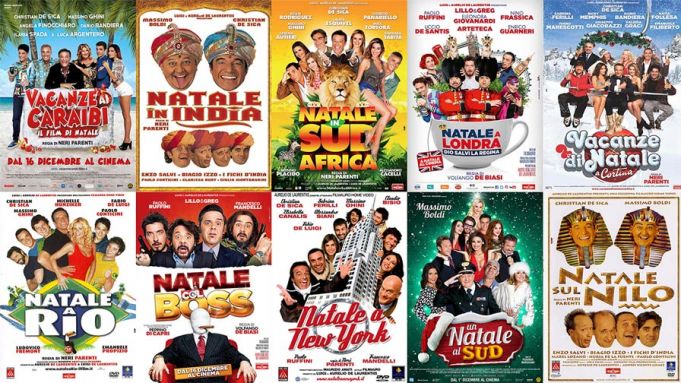All you need to know about the Cinepanettone genre.
The birth of cinema in the early 1900s led Italians to produce documentaries, which slowly started adopting the movie structure when elements of fiction were incorporated to interest the audience, ultimately forming a movement known as “Neorealism".Throughout the years, the Italian film industry kept experimenting various styles of storytelling until the 1980s, period in which the phenomenon of the cinepanettone became a tradition and a seasonal ritual in the Italian culture.
What is a Cinepanettone?

The derogatory term “cinepanettone” was first used by film critics to indicate a comedic product of great public diffusion specifically released during the Christmas period, which was characterized by factors such as repetition in the plot, the use of the same actors throughout the years, and the huge success at the box-office.
The fathers of the genre are Carlo and Enrico Vanzina, who became famous after directing Sapore di Mare, a romantic comedy set in summer released in 1983. The movie incited producer Aurelio De Laurentiis to commission a similar work set in the Christmas period in a ski resort.It is arguable that the ancestor for the genre of cinepanettoni is in fact Vacanze di Natale, released on Christmas Day in 1983 and directed by Carlo and Enrico Vanzina.
The aura constructed around cinepanettoni consists of light-heartedness, which serves as a break from work and transition into holidays. The model created by the Vanzina directors with producer De Laurentiis, consisted in a cinepanettone per year, which allowed the movement to explore various locations around the world.
In fact, every movie is set in a different place, often promoting tourism for the chosen location. However, the genre of cinepanettoni is a purely commercial phenomenon without any artistic pretence and the will to innovate, as gags are often recycled and situations are repeatedly more embarrassing throughout the years, appealing to a very low average cultural level.In fact, the comedy of cinepanettoni focuses on a parody of the stereotypical view of the average Italian and exaggerates common family drama situations. Cinepanettoni are mainly recognized and characterized by the duo of actors starring in the movies, as the huge success of Vacanze di Natale ‘90 marked the beginning of a dynamic partnership between Christian DeSica and Massimo Boldi.
Main and most famous Cinepanettone actors
For instance, in most cinepanettoni actor Christian DeSica impersonates an inheritance hunter who tries to make ends meet by trying to marry very rich women but is hampered in part by the presence of a lover and the social incompetence of his co-star., mainly played by actor Massimo Boldi.The common plot for this genre is filled with betrayals, thefts of money, family issues and drama between friends. The cinepanettoni are therefore a genre that brings people together for the Christmas period, but that at the same time highlights and underlines a society that struggles to remain in peace and united, being too busy while arguing and competing against each other.
In 2006, actors De Sica and Boldi separated to pursue solo careers, which resulted in the formation of two styles of cinepanettoni, ultimately saturating the film industry. In fact, the genre was proclaimed defunct by many for years until 2020, when the duo returned in a movie called Vacanze Su Marte. The latest Christmas movie with the historical duo has received low ratings as it was considered to be a nostalgic attempt to revamp the genre from the 1980s, in a society in which comedy has reached higher standards of quality and has evolved to be more intelligent and innovative.The genre of cinepanettoni has marked an important period in Italian cinema and culture. Its peculiar but repetitive sense of humour, often reassures the public, presenting them with common and familiar scenarios that are parodies of the stereotypical Italian lifestyle.


















